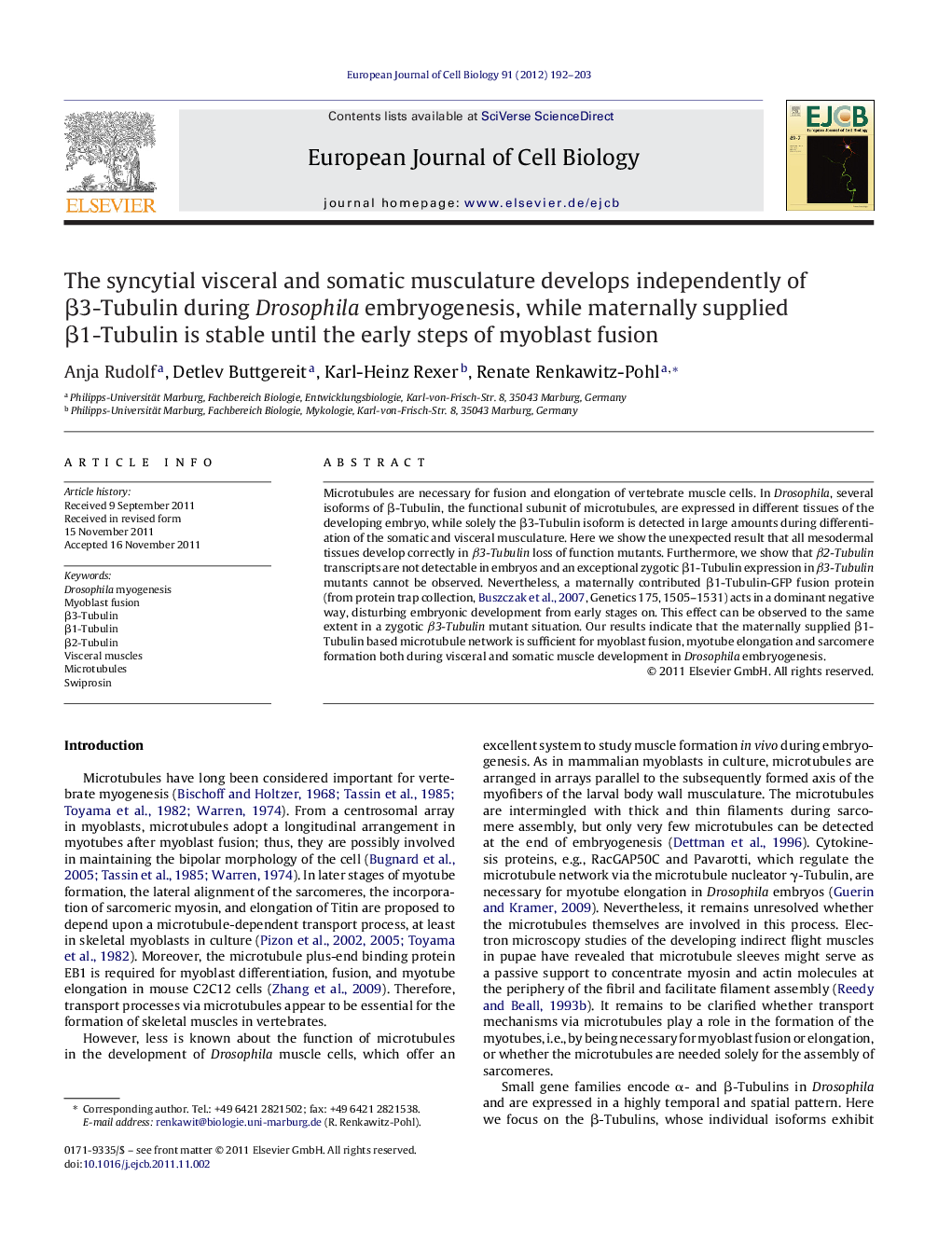| کد مقاله | کد نشریه | سال انتشار | مقاله انگلیسی | نسخه تمام متن |
|---|---|---|---|---|
| 8470033 | 1549706 | 2012 | 12 صفحه PDF | دانلود رایگان |
عنوان انگلیسی مقاله ISI
The syncytial visceral and somatic musculature develops independently of β3-Tubulin during Drosophila embryogenesis, while maternally supplied β1-Tubulin is stable until the early steps of myoblast fusion
دانلود مقاله + سفارش ترجمه
دانلود مقاله ISI انگلیسی
رایگان برای ایرانیان
موضوعات مرتبط
علوم زیستی و بیوفناوری
علوم کشاورزی و بیولوژیک
دانش گیاه شناسی
پیش نمایش صفحه اول مقاله

چکیده انگلیسی
Microtubules are necessary for fusion and elongation of vertebrate muscle cells. In Drosophila, several isoforms of β-Tubulin, the functional subunit of microtubules, are expressed in different tissues of the developing embryo, while solely the β3-Tubulin isoform is detected in large amounts during differentiation of the somatic and visceral musculature. Here we show the unexpected result that all mesodermal tissues develop correctly in β3-Tubulin loss of function mutants. Furthermore, we show that β2-Tubulin transcripts are not detectable in embryos and an exceptional zygotic β1-Tubulin expression in β3-Tubulin mutants cannot be observed. Nevertheless, a maternally contributed β1-Tubulin-GFP fusion protein (from protein trap collection, Buszczak et al., 2007, Genetics 175, 1505-1531) acts in a dominant negative way, disturbing embryonic development from early stages on. This effect can be observed to the same extent in a zygotic β3-Tubulin mutant situation. Our results indicate that the maternally supplied β1-Tubulin based microtubule network is sufficient for myoblast fusion, myotube elongation and sarcomere formation both during visceral and somatic muscle development in Drosophila embryogenesis.
ناشر
Database: Elsevier - ScienceDirect (ساینس دایرکت)
Journal: European Journal of Cell Biology - Volume 91, Issue 3, March 2012, Pages 192-203
Journal: European Journal of Cell Biology - Volume 91, Issue 3, March 2012, Pages 192-203
نویسندگان
Anja Rudolf, Detlev Buttgereit, Karl-Heinz Rexer, Renate Renkawitz-Pohl,